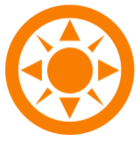Hello everyone,
I have modelled a really basic system in order to see the impact of polarization on interference pattern formation.
This system uses 2 sources of different polarizations interfering on a detector.
The variation of the input polarizations states (linear and elliptical or right circular and left circular for instance) seems to have no impact at all. Is it normal?
Because in theory, the contrast should vary. Is Zemax reliable for that kind of polarization analysis? Or is my setup wrong in a way?
Hope my questions were clear. The system is in the attached file.
Best regards,
Marie Fournier



